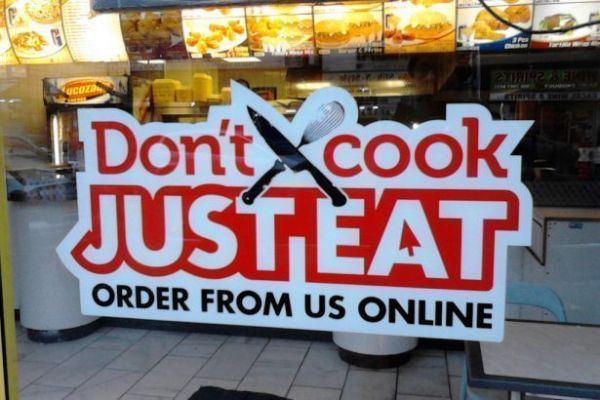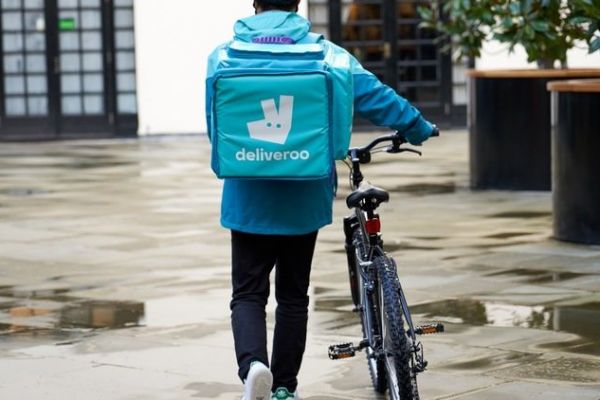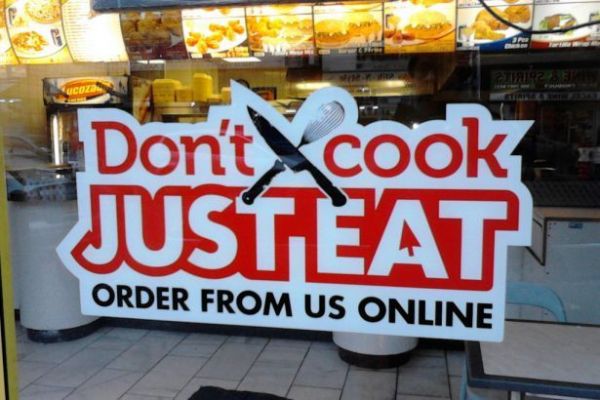Having too many cooks in the kitchen is usually a bad thing. Just Eat Plc could probably do with a few more.
The leadership of Britain's biggest food delivery company is looking depleted after CEO David Buttress stepped aside unexpectedly for family reasons and chairman John Hughes, who was filling in as CEO as he looked for a new one, has taken medical leave. The finance director, who only joined Just Eat in September, will step in as interim CEO, while board member Andrew Griffith will serve as chairman until Hughes returns.
While a company can't be blamed when life happens, the understudies are taking over a delicate time. Just Eat is facing more competition from companies such as Uber Technologies Inc. and Deliveroo, which are colonizing the higher end of the British restaurant market ignored by Just Eat's focus on pizza and kebabs.
A further challenge looms in replicating U.K. success in new countries such as Australia and Canada, where Just Eat has expanded via expensive acquisitions.
On Tuesday, the company reported sales up 40 percent on a comparable basis to 118.9 million pounds for the first quarter, the last of Buttress's tenure. It also confirmed its annual guidance. All good right? Well, not entirely.
U.K. order growth, an important metric for investors, fell to 17 percent in the first quarter, its lowest level since the company went public in 2014. British order growth is expected to be in the mid-to-high teens for Just Eat this year, according to Neil Campling of Northern Trust Securities, a sharp deceleration from two years ago when it was about 50 percent.
In fairness, companies that experience rapid growth will start maturing at some stage. Maybe Just Eat has already reached most budget-conscious customers with the late-night munchies. It only works with restaurants that have their own delivery drivers, unlike Deliveroo and Uber who bring you the food themselves.
The asset-light model has advantages, namely that it's cheaper to run. Just Eat has been profitable since before it went public, and margins are still improving.
Still, this is all priced in to the stock -- and then some. While the shares have flattened out this year, after steep rises, they're still pretty much double the IPO price.
The company's valuation multiples aren't quite as heady as they once were, as earnings have caught up with the share price, but it still trades on about 30 times expected earnings, according to Bloomberg data. This is still higher than Google owner Alphabet Inc. and Facebook Inc. Just Eat also commands a premium enterprise value to Ebitda ratio.
The company has been very good at confounding the doubters, but much of its success is based on strong management. So all the changes are disconcerting. Even the Just Eat ultra-bulls at Jefferies say they "do contemplate from time to time the wisdom of changing both CEO and CFO within 12 months".
The delivery specialist has managed to grab a big seat at the British restaurant table. Its new leaders must show they can keep it.
* This column does not necessarily reflect the opinion of Bloomberg LP and its owners.
News by Bloomberg, edited by Hospitality Ireland








